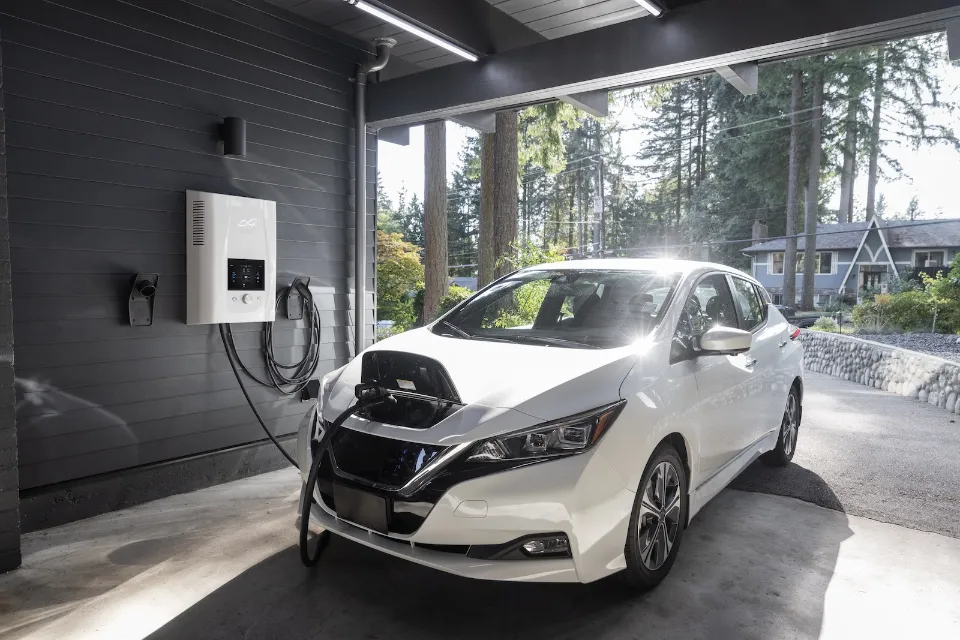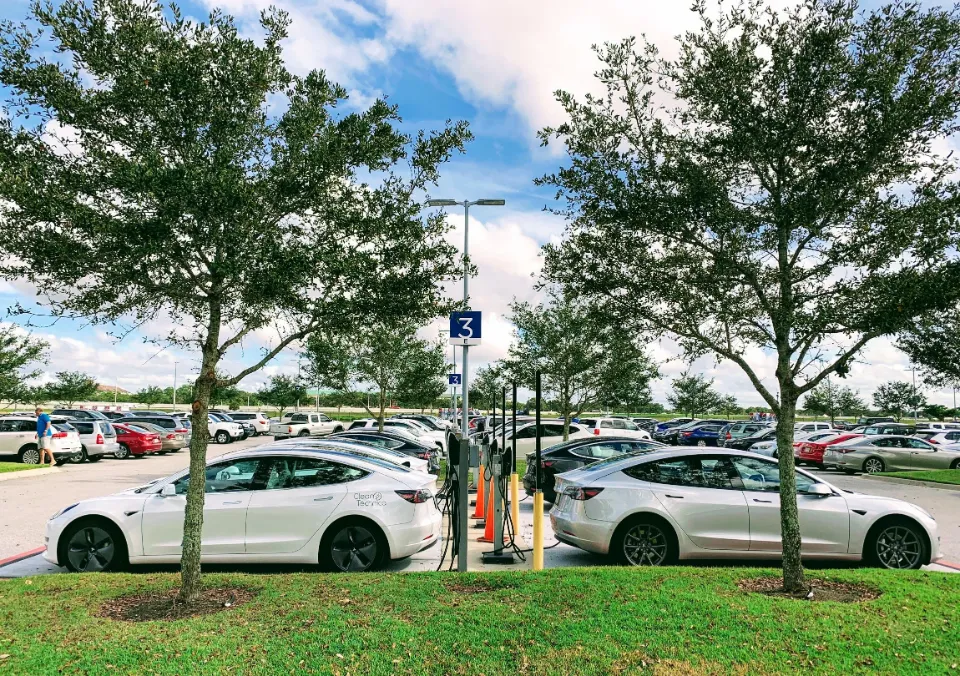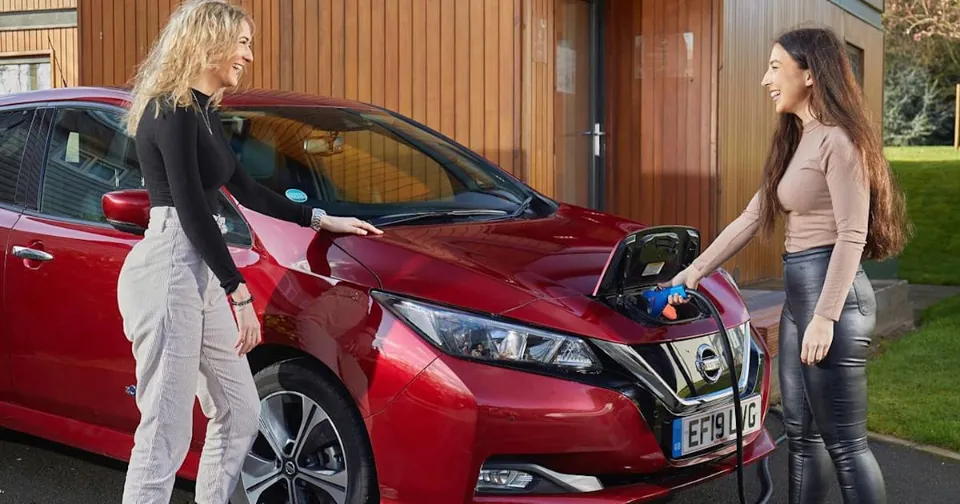Purchasing an EV is an eco-friendly solution that helps reduce air pollution, slow down natural resource depletion, and save you cash. Although charging one of these vehicles can quickly become a hassle, many owners opt to install an EV charger at home.
How much does it cost to install an EV charger? The price generally starts at $500. If you already have a 240 V outlet at your home, the basic installation procedure won’t set you back much money; it should only cost you $200 to $500. Add about $1000 to $1500 to your estimate for the cost of the electrician’s time and materials, such as wiring and plugs, if you need to install the system from scratch, including the wiring, new service panel, and 240 V outlet.
Please read on for more detailed information.
What is An Electric Vehicle Charging Station?
Instead of using gasoline or oil, electric vehicles run on rechargeable batteries. Ideally, when your car is not in use, your battery needs to be recharged. To do this, you need an electric vehicle charging station 1. Essentially, it is a way to plug your car’s battery into an outlet that charges it. The majority of electric vehicle owners install a charging station at home because they find it difficult to find them in public areas. Actually, more than 80% of EV charging takes place at home, according to the Natural Resources Defense Council (NRDC). You can choose from a variety of charging stations depending on your vehicle, your residence, and the amount of time you need to charge between trips.
Read about:
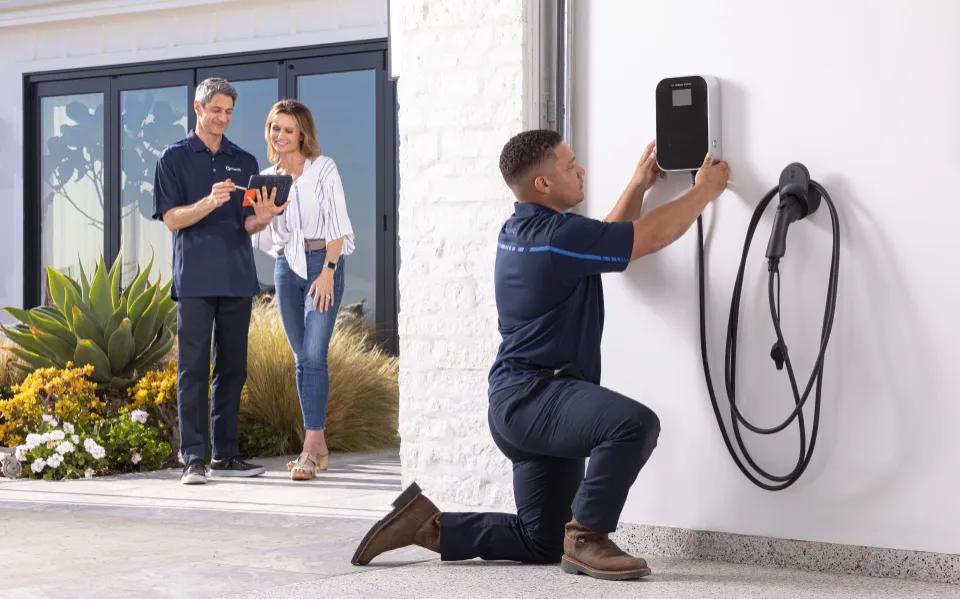
How Much Does It Cost to Install An EV Charger?
Level 2 charging stations could be universal or vehicle specific. The price typically starts at $500. If you already have a 240 V outlet at your home, the basic installation procedure won’t set you back much money; it should only cost you $200 to $500. If you need to mount the system from zero: do the wiring, and install a new service panel and 240 V outlet – add about $1000 – $1500 to your estimate, with the electrician’s work and materials like wiring and plugs included.
Before making a choice, look into the incentives offered by the federal, state, and local governments to encourage drivers to switch to electric vehicles. These incentives may include bonuses and credits for installing home chargers.
Depending on where you live, what you drive, how quickly you want your car to recharge, and what other changes to your home’s electric circuit are necessary, the cost to install a home charger could range from $0 to $50,000. Be prepared to spend anywhere between $1200 and $2500 on average to get a good price/quality ratio.
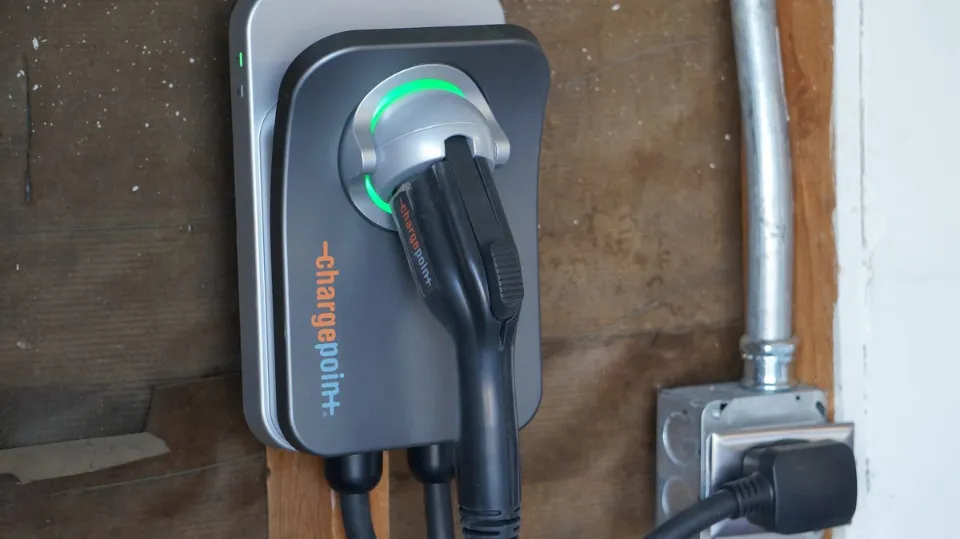
Read about:
Factors Affecting the Cost to Install An EV Charger
There are a few things that can affect the price of the installation job, so it’s worth noting what they are before booking the service in…
Location of the Charging Point
While most charging stations are external, if the desired location or wall is far from the main fuse box, more cable supply may be necessary, adding to the cost.
Charging Output
Although they can now reach 22kW for more powerful, more recent car models, EV chargers typically have a 7kW charging output. When buying and installing an EV charging point for your property, the cost may increase the higher the power output is. If a slower charge is low priority to you, this can be an effective way of keeping costs down.
Wiring a Circuit Breaker
When installing a charging point, your property must be prepared for this additional use of electricity. Often you can get an EV charging point installed by a handyman, butif you find that the house needs a consumer replacement unit, you’ll need a qualified electrician to fit one which can affect the total cost of the job.

Installing Security Lighting
This is an additional task that isn’t directly related to installing an EV charger but is a wise choice for added security. You may want to consider installing a sensory light near the EV charging station to keep your new technology out of the hands of any would-be thieves.
New Driveway
You’ll need to construct a new driveway if you don’t already have off-road parking in order to safely park your vehicle close to the charging station.
Additional Considerations and Costs
- Permit. A permit is typically needed to add a 240-volt outlet. If you want to know more about whether you need a permit, contact your town or city hall.
- Electrician.Your electrician will have to run wires to the location where you’re installing the outlet if it doesn’t already have wiring. This has a cost of $6 to $12 a linear foot.
- Tax credits. You might discover that tax credits are offered for owning and operating an electric vehicle, which can reduce costs. See if your state offers any related rebates or incentives to users of electric vehicles and charging stations, or look into the federal tax credits offered by the US government.
- Upgrade. If your system consumes too much electricity, it might overwhelm the circuit panel in your house, necessitating an upgrade.
- Cable length. There are different lengths of charging cables, ranging from 2 to 25 feet. Investing in a longer cable may cost $20 to $30more but can give you more flexibility in parking and where you install the charger.
- Certificate. Choose a charger that has been approved for use with electric vehicles, no matter what.
- Warranty. The majority of chargers have a parts and labor warranty of one to three years. The charger’s warranty may be void if you modify or otherwise alter it.
- Safety. Verify the UL certification on your vehicle charging station, which attests to its safety testing. Additionally, keep in mind to keep children and animals away from outlets and connectors.
- Multi-unit dwellings. You might want to think about installing a charging station in the parking area if you own an apartment complex or are a member of a condominium or townhouse association. A Level 3 charging station designed for multiple vehicles is a great way to attract new renters or buyers and improves your property value for the entire community.
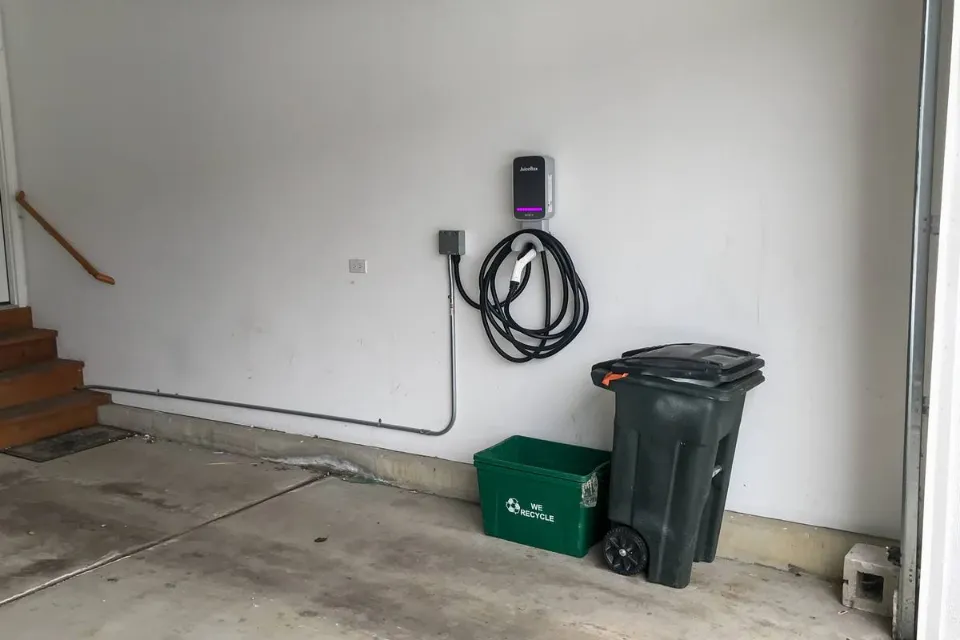
How to Save Money on Your EV Charger Home Installation?
If you’re searching for ways to cut back on the cost of installation, here’s a few solutions you may not know about:
Always Get More Than One Quote
When you’re looking for a professional to fit your home EV charger, we’d recommend getting at least three quotes from different traders. This helps you not only get a more reasonable price on the job but also comprehend the project’s budget and prevent unpleasant surprises.
With Rezigo, you can get free quotes from local EV installers in your area. For a quote right away, click here.
Make Use of Government Grants
Electric vehicle owners have the option to apply for a government grant known as the EV ChargePoint Grant via “OZEV” stands for “Office of Zero Emission Vehicles.”
This UK grant offers funding up to 75% for the installation cost at any domestic property, and it came into effect as of replacing the prior EVH Scheme in April 2022.
You can view more details about the grants, including a list of eligible vehicles, by visiting this page.
Workplace Charging Scheme
This voucher-based program assists EV owners with the initial costs of both purchase and installation for charging points they wish to install at their place of employment.
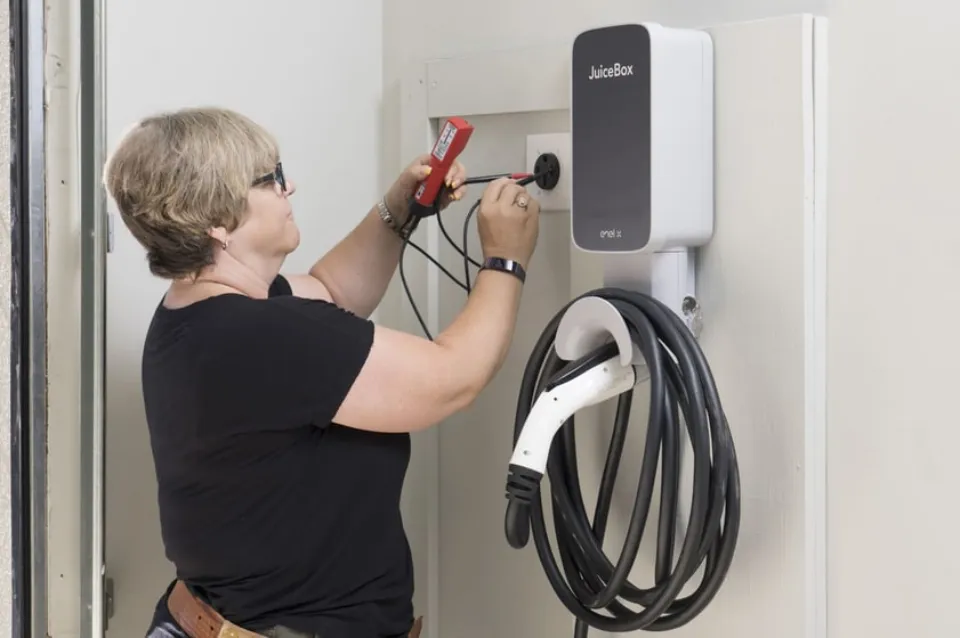
Cost to Install An EV Charger by Type
In theory, there are three different levels of car charging stations. You will probably receive a Level 1 charger along with your electric car when you buy it. Although you don’t need to make any changes to your house for this to plug into any 120-volt outlet, the charging time is longer. For use at home, level 2 chargers are more prevalent. They can be made for one or two cars and charge more quickly than Level 1 batteries. Level 3 chargers are more frequently used outside of commercial buildings and are not typically used in residential settings. Each charger type has its own costs, attributes, and other things to consider:
Level 1 Charging Station Cost
Level 1 chargers are free with your car purchase, or you can buy a replacement charging station for $300 to $600. These portable chargers are less expensive because they don’t need to be installed and can be plugged into any 120-volt outlet. They are generally only useful if you do not drive frequently or only drive short distances because it can take them up to 24 hours to fully charge a battery. In essence, a Level 1 charger extends the driving range of your car by 2 to 5 miles for each hour of charging. A Level 1 charger is frequently kept on hand for when a person is away from home. However, unless you can plug it in wherever you go when the car is not in use, you may find that this charger will not completely satisfy your needs if you drive a fair amount on a daily basis. Also, setting up a level 1 charging station will be more difficult if you are not using a standard wall outlet.
Level 2 Charging Station Cost
Level 2 charging stations are most common for electric vehicle owners and cost between $600 to $1,200. Batteries are charged much more quickly by level 2 charging stations, which typically take just a few hours to fully charge. Even basic models completely charge a battery 4 to 6 times faster than a Level 1 charger, with 10 to 40 miles being added per hour. Level 2 stations can be hardwired into your home or mounted and are portable. They require a 240-volt outlet. While some require an adaptor to charge any car, others are model-specific. Special features, such as Wi-Fi and other add-ons, let you personalize your charging experience.
Level 3 Charging Station Cost
Level 3 charging stations range from $12,000 to $35,000 for the charger and hardware. These chargers, which were created for industrial use, are becoming more and more common for residential charging stations. They charge batteries incredibly quickly, giving them a minimum charge of 100 to 400 miles and a full charge in under an hour. Multiple vehicles can be charged simultaneously at these stations. Although it may seem appealing to think about charging your car so quickly, most homes do not have the room or panel to support them since they need 480-volts. For a level 3 charging station to be supported in a private home, typically a second panel will need to be installed.
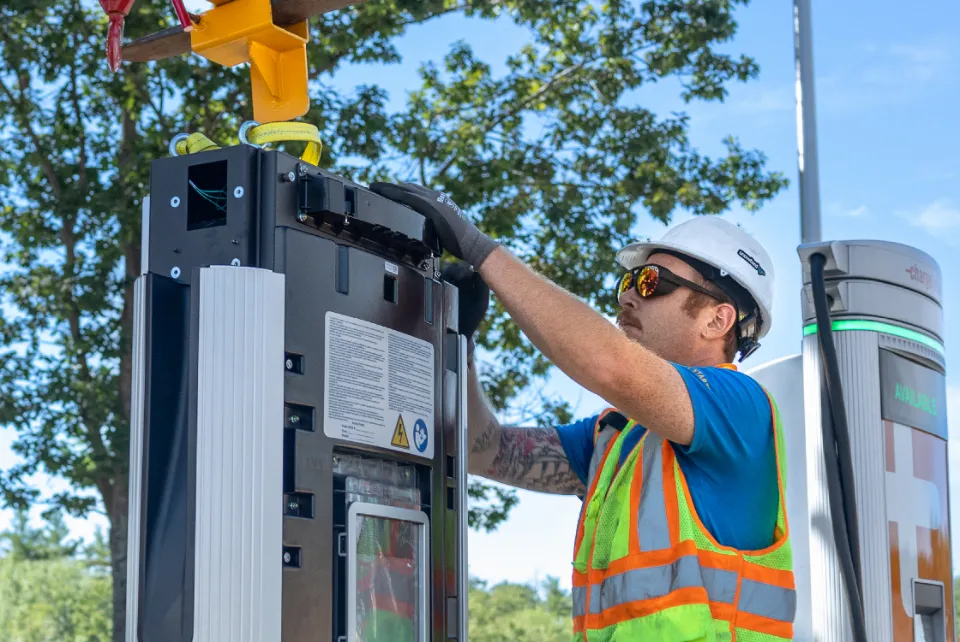
How Do You Install An EV Charger at Home?
If you are ready and are aware of the steps necessary to begin, installing an EV charger at home can be simple and quick. Ordering a EV charger and then quickly trying to figure out how to install it will result in less than desirable results. To install an EV charging station safely and where you want it in your home, you must first understand the differences between the three types of EV charging stations. After that, you must hire a licensed electrician you can rely on.
Are Home Charging Stations Safe?
Home car charging systems are completely secure when you buy a good unit that is made for your car and have it installed by a professional. A Nationally Recognized Testing Laboratory must certify any charging station before it can be installed anywhere in the US, according to the National Electrical Code (NEC). To ensure that the charger you buy has undergone testing and is certified for safety, look for the NRTL mark, which can be found alongside the UL (Underwriters Laboratory) or ETL (Intertek) marks. Similar dangers to other electrical appliances, including the risk of an electrical fire, can arise from attempting a DIY installation or buying a unit that has not undergone safety testing.
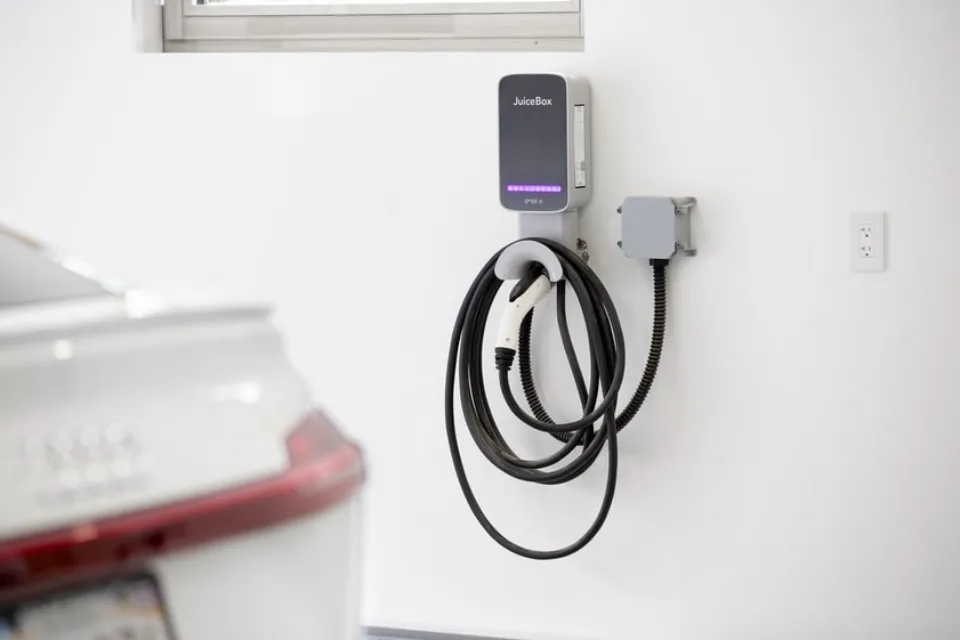
FAQs
Can You Install a Level 2 Charger at Home?
Yes, you can install a Level 2 charger at home. Because a DC fast charging station is so expensive and uses so much electricity, you won’t be able to install one in your home. Additionally, as was already stated, a homeowner does not require a DC fast charger at home. Charging with a Level 2 charging station means you will be charging your electric vehicle for cheap and you won’t have to undergo major construction just to install your charger.
Can I Install My EV Charging Point Myself?
You shouldn’t install an EV charger yourself unless you happen to be a certified electrician (lucky you). Nothing about this should be taken lightly. An improperly installed home charger poses a risk and may result in disastrous occurrences like a house fire.
Hire a licensed and certified electrician for your safety, the longevity, and efficiency of your EV home charging station. You should work with an electrician who is knowledgeable and experienced with EV charging equipment. Since installing EV charging stations is specialized work that necessitates additional knowledge that a typical electrician may lack, many electricians are beginning to pursue EV charging training.
WattLogic has a database of certified and trusted electricians that have been trained in EV charging installations and know exactly how to complete your installation safely and efficiently.
Can You Plug Your Electric Car into a Regular Outlet?
Undoubtedly, a Level 1 charger will be included when you buy an electric vehicle. You can connect your car to a standard 120-volt outlet using this slow charger. This is not the best choice for all cars. When driving a hybrid or an electric car only occasionally or for short distances, it works best. This charger is frequently not practical for most drivers because it takes up to 24 hours to fully charge your car’s battery. Most people upgrade to a Level 2 charger to get quicker charging speeds.
Summary: How Much Does It Cost to Install An EV Charger?
When you get an EV, it’s best to carefully consider your recharging options. Spending ranges from $500 to $2500, depending on the level and type of charging station you select. Still, the final price also depends on particulars, like additional electric system upgrades. Decide on the option that best fits your needs and your budget while also making the most sense to you.

